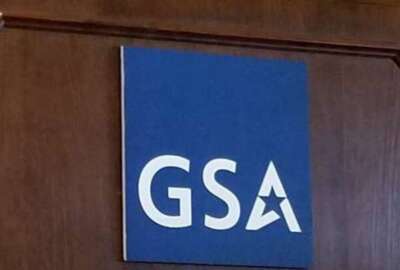Best way forward for GSA is to believe in their programs, people
Commentary: Larry Allen, president of Allen Federal Business Partners, writes that some of the pricing data initiatives are sending a disheartening message to...
By Larry Allen
President, Allen Federal Business Partners
General Services Administration officials involved in the Multiple Award Schedules program have many initiatives in development. From price comparison tools to flattening out pricing differences for identical items, all are intended to provide more transparency and information to federal buyers. Making sure your program is working well is always a good idea, but GSA is moving on so many paths at one time that there is reason to be concerned.
Collectively, these initiatives make it seem like GSA has an inferiority complex when it comes to standing behind its people and programs. As agency leaders move ahead, they need to keep two things in mind: First is the old adage “You can’t please all of the people all of the time.” 
The attempt to collect transactional data and populate it in a prices paid comparison tool is the most obvious example of the inferiority complex. Since the day the government created the Schedules program in the 1940s, some federal buyer somewhere has said “I can get it for less.” A leadership assured of its programs fundamentals would examine such claims. They could find some to be true, but others would likely be false. Necessary tweaks could be made to the system.
The prices paid database project is a sign that GSA officials believe each and every “I get it for less” claim.
Here’s a true statement GSA officials need to understand: No matter how thorough the fire drill you’re going through now, there will still be federal buyers who say “I can get it for less” when you’re done.
This isn’t to say that reasonable efforts to ensure fair prices on the Schedules shouldn’t be undertaken. Collecting information on why prices differ at the contract level may be a good exercise. Similarly, market research — so long as it’s based on “apples-to-apples” comparisons — could bring good results. Attempting to build a huge, likely unworkable, expensive system, however, is a disproportional reaction.
The transactional data gathering exercise, coupled with the price flattening initiative, also sends a message to GSA MAS contracting professionals: “We don’t trust you to do your job.”
Schedule contracting professionals today are responsible for reviewing both contractor-provided information on their discounting practices as well as market prices provided by other companies for the same or similar items. They are trained to evaluate data, set aggressive pricing objectives and negotiate often complex terms.
These contracting professionals have long had obtaining “most favored customer” pricing as their overriding objective. Do they always achieve it? Of course not.
First, as GSA’s guidelines say, there are legitimate differences in how commercial customers buy versus the government that need to be taken into consideration.
Second, GSA’s ordering rules stipulate that buyers should always seek deeper discounts at the time an order is placed. A GSA contracting officer’s mission, then, is to drive hard bargains and get good contract-level prices that ensure any transaction-level discounts — the prices a customer actually pays — are competitive. Do they do this today? Almost always.
This is done despite the fact that there is currently no one person at GSA overseeing the Multiple Award Schedule program, including its contracting professionals. There hasn’t been for years.
Providing the necessary infrastructure, support, staff, and training for program professionals would achieve significant results for GSA and ensure that its contracting professionals understand that they have a solid career path within the agency.
It’s worth remembering, too, that any automated system that merely provides more data without giving professionals the means to use it achieves little.
At a more basic level, though, GSA leaders need to believe in their program and know its value statement by heart. The Schedules program is excellent for filling many federal needs. It has a proven track record of success. It should be easy to get behind such a program. After all, nothing better instills confidence in co- workers or customers than management support of a marquis program.
Managed correctly, the Multiple Award Schedule program can continue to provide great values for federal agencies. It’s not in business, though, to be the federal equivalent of the Dollar Store.
When management understands this and is secure about the program, it can tell skeptical buyers “We do our best to make sure we’re competitive, but no one can be the cheapest all of the time.” This echoes a key commercial practice, something important for a commercial solution contract. It’s basically what Walmart says to its customers.
Larry Allen is the president of Allen Federal Business Partners. Allen is the former president of the Coalition for Government Procurement and brings more than 20 years of experience in U.S. federal market procurement policy, including not only policy representation, but the information, education and training critical to any business seeking to start or accelerate its federal business.
Copyright © 2025 Federal News Network. All rights reserved. This website is not intended for users located within the European Economic Area.





